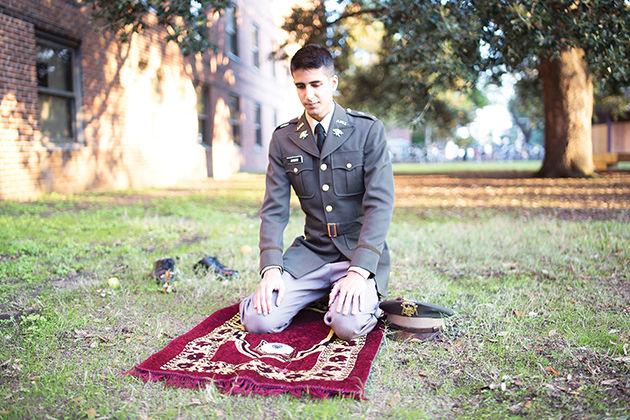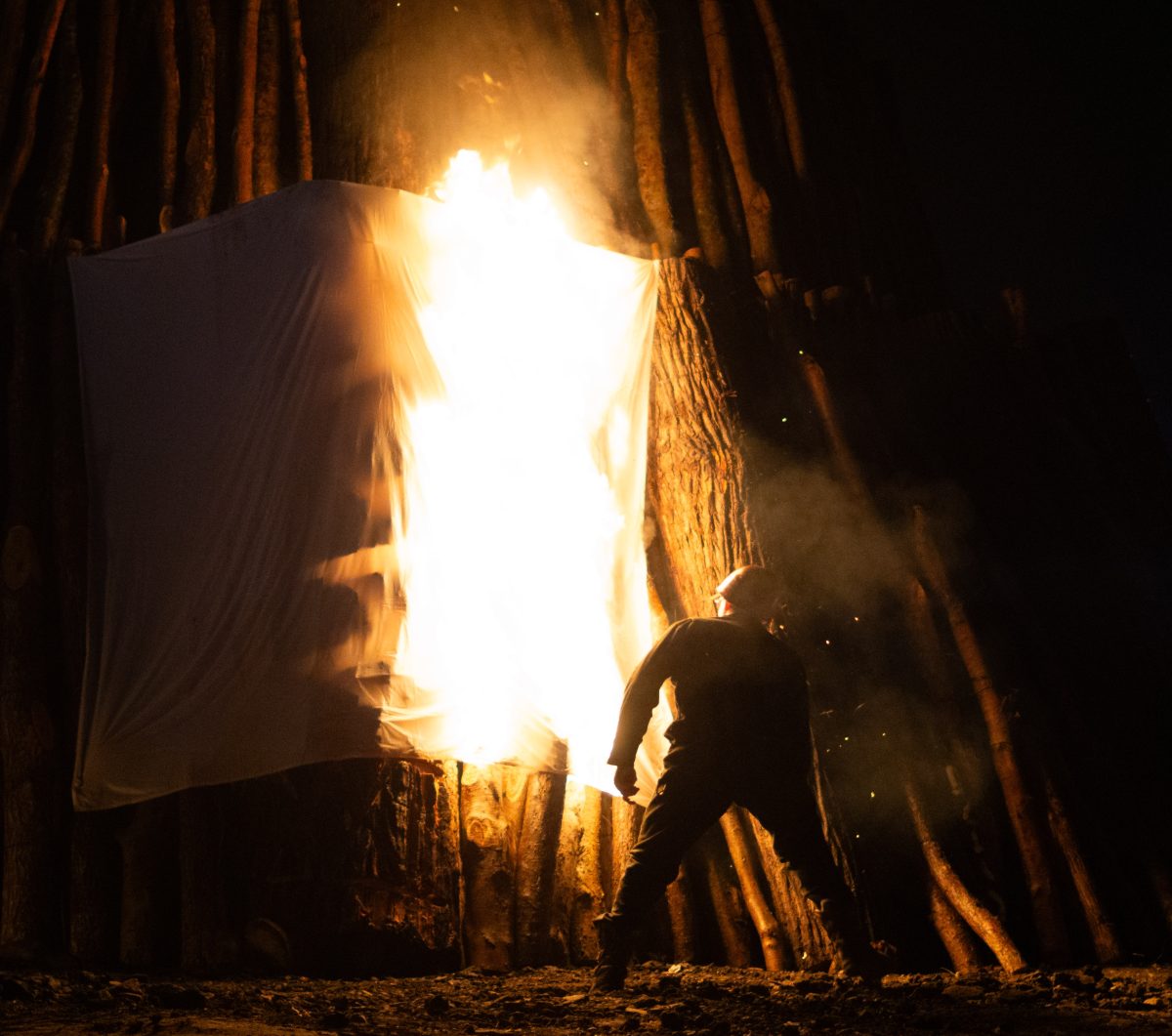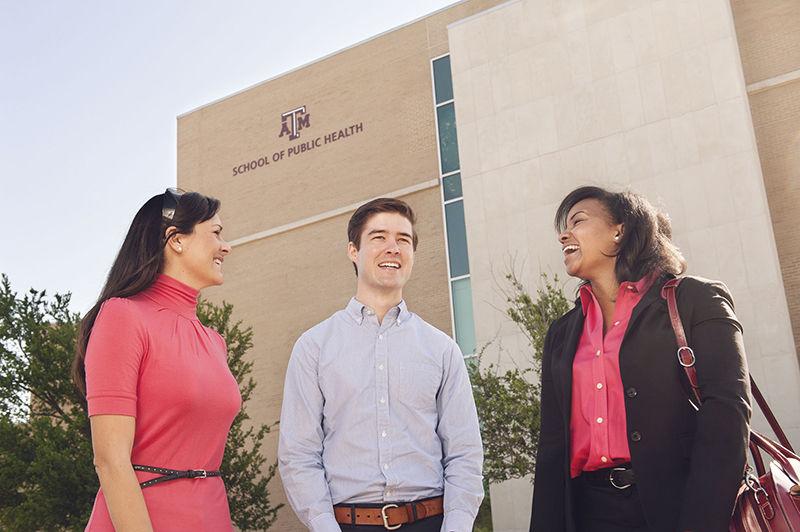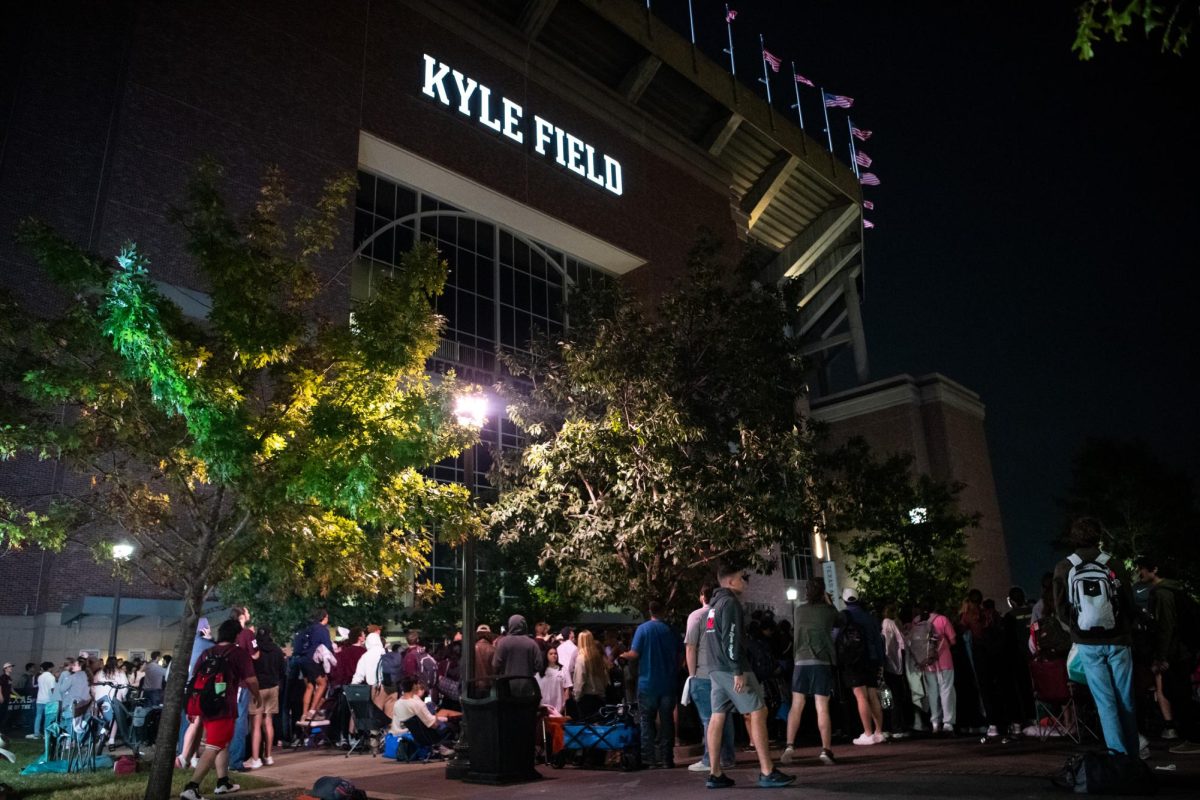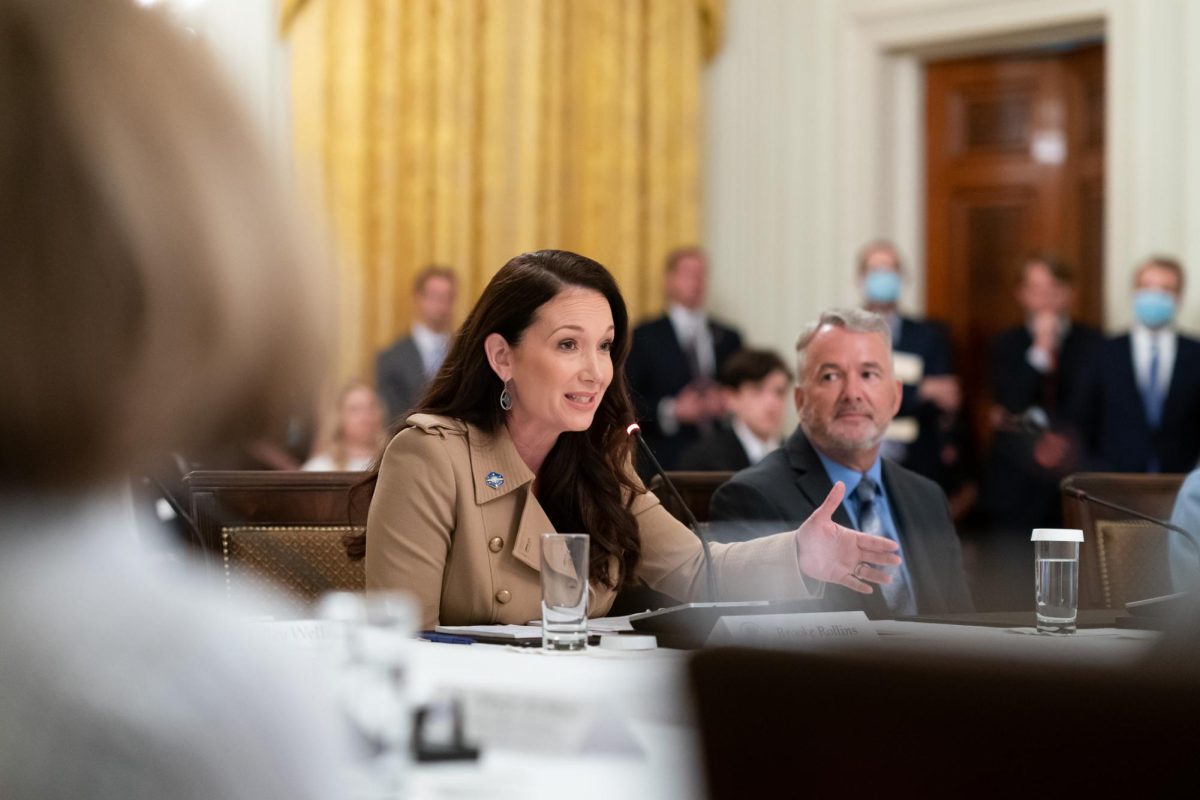Noor Shahed joined the Corps of Cadets in part to lead the way for other Muslims.
“I’m enlisted in the [U.S.] Army, and I just got back from basic training, so I’m committed,” Shahed said. “I’m in the Corps to prove to Muslim girls out there that they can do it.”
Shahed is among a small group of practicing Muslims who have found their campus niche in the Corps. The sociology sophomore and member of Squadron 6 said her involvement in JROTC in high school as a battalion commander also heavily motivated her to join the Corps.
“Since freshman year of high school, I would say, ‘If I go to A&M I won’t be a regular student, I have to do the Corps,’” Shahed said. “The program is so good, I couldn’t not be a part of it. Especially knowing my personality, I had to.”
Shahed said she receives a lot of questions regarding her religion, including how she prays, what she wears and different facets of Islam.
“I have never been exposed to people so interested in the Middle East,” Shahed said. “I was taken back by all the questions.”
Muhammad Usama Ahmad, electrical engineering sophomore and cadet in Squadron 21, is an international student from Pakistan who joined the Corps in part for a scholarship. Ahmad said he has met a few students who had preconceptions of Muslims and Islam from the media, but said he has had the chance to clear a lot of their misconceptions.
“They thought that Islam is basically just terrorism,” Ahmad said. “I taught them that the meaning of Islam is peace and our greeting, ‘Assalamu Alikum’ [peace be unto you], and about our prophet and God. Especially the concept of Jihad, I cleared that misconception. Jihad just means struggle, and there are rules of Jihad. Jihad isn’t terrorism and fighting against the U.S.”
Shahed said she was familiar with similar prejudices from a young age, which caused her some degree of hesitation when it came to opening up about her religion.
“I was bullied for it when I was younger,” Shahed said. “People would say and do a lot of mean things. It was really hard for me and I remember I wasn’t comfortable talking about religion at all because I was so scared of those things happening again. That’s why I was like, ‘Give me my space’ when people would ask so many questions.”
Ahmad said he has gotten positive responses from other cadets “The Corps is very welcoming. There are a lot of international students I have met,” Ahmad said. “It’s a very friendly environment. When students found out freshman year that I was an international student from Pakistan, they really appreciated the fact that I joined the Corps.”
Nazif Ali, computer engineering junior and cadet in Squadron 3, said he joined the Corps for its leadership opportunities. Ali said his dad was in the Pakistani Army and his brother attended military college, which led him to want to experience a military lifestyle.
“Leadership is a very sought after quality. That’s why I joined the Corps,” Ali said. “I also wanted to get involved on campus, so I decided to join so I can be active and social outside of studying.”
Ali said the main issue he sometimes faces as a Muslim student and cadet comes from the different dietary and alcoholic restrictions he has.
“When I tell peers I don’t eat pork nor drink, they kind of don’t like it,” Ali said. “They don’t say anything to me, but I sense it. I feel a little excluded, but it doesn’t affect my relationship with them.”
Both Ahmad and Ali said language was the main culture shock they faced after coming from Pakistan.
“I have a lot of family in Texas and a lot of my other friends come to Texas from Pakistan,” Ahmad said. “I think the culture shock was joining the Corps, experiencing military life with a different language, wearing a uniform. Every instruction is in English, not in Urdu, and they say everything really quick.”
Ahmad said he is able to practice his religion easily with the Corps structure, and has the opportunity to attend religious events and obligations, even if they interfere with mandatory Corps training or work.
“I can even miss a football game, physical training and training time,” Ahmad said. “On Friday mornings and afternoons, I go to pray Fajr [which is the morning prayer] and Jummah [the Friday sermon]. Also on [the Islamic holiday of] Eid I basically have a holiday, I don’t have to do anything that day. They understand, and they ask me if I have any problems.”
Commander of the Corps of Cadets Alyssa Michalke said while the Corps doesn’t keep track of religion once a cadet enters, they do accommodate religious activities for all religions.
“If a cadet in general needs to miss an activity because of a religious event or religious service of some sort, all they have to do is talk to their chain of command, the cadet they generally report to and say ‘ I have a religious service and I will need to miss this Corps activity’” Michalke said. “We approve it so they can practice their faith as they see fit.”
Ali said being a Muslim in the Corps allows him to show those around him Islam is much more than what some Americans assume.
“There are 1 billion Muslims in the world and they cannot be painted in the same paint because each individual is different,” Ali said. “Not all the Muslims can be seen in the same light. See them individually as a person, then see their religion and beliefs.”
Life as a Muslim cadet
November 3, 2015
0
Donate to The Battalion
Your donation will support the student journalists of Texas A&M University - College Station. Your contribution will allow us to purchase equipment and cover our annual website hosting costs.
More to Discover



